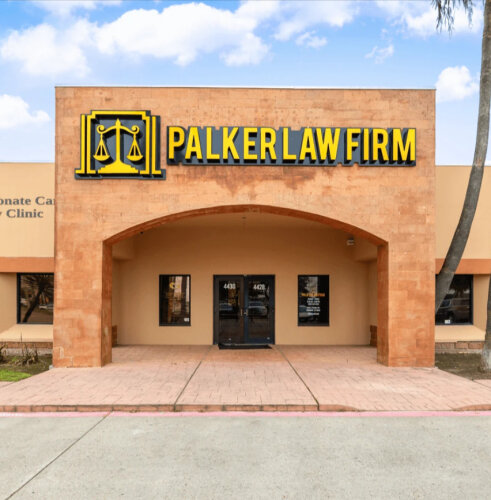Best Marine Insurance Lawyers in Edinburg
Share your needs with us, get contacted by law firms.
Free. Takes 2 min.
List of the best lawyers in Edinburg, United States
About Marine Insurance Law in Edinburg, United States
Marine insurance covers loss or damage to vessels, cargo, freight, and liabilities arising from marine operations. In Edinburg, Texas, United States, marine insurance issues are governed by a mix of federal maritime law and state insurance regulations. Federal maritime law controls many substantive issues that arise on navigable waters and in maritime commerce, while Texas law regulates insurance companies licensed to sell policies in the state, claims handling practices, and consumer protections. Even though Edinburg is inland in the Rio Grande Valley, residents, businesses, carriers, and shippers here can be involved in marine matters such as inland waterways transport, coastal shipments, fishing operations, vessel repair and construction, and cargo shipments that transit through Texas ports. Understanding both the maritime legal principles and local regulatory landscape is key to resolving disputes and protecting rights under a marine policy.
Why You May Need a Lawyer
Marine insurance matters often involve technical policy language, multiple parties, and tight notice or filing deadlines. You may need a lawyer in Edinburg if you encounter:
- A denied or underpaid claim where the insurer cites policy exclusions, misrepresentation, or late notice.
- A total loss, constructive total loss, or a disputed valuation of a vessel or cargo.
- Complex liability claims after a collision, pollution incident, injury, or property damage that could involve admiralty liens and contribution or indemnity claims.
- General average or salvage claims where costs are shared among cargo interests and shipowners, requiring legal and technical handling.
- Coverage interpretation disputes over clauses such as warranties, sue-and-labor obligations, deviation, or war risks.
- Subrogation and recovery actions against third parties after an insurer pays a loss.
- Matters involving federal maritime statutes such as the Jones Act, Longshore and Harbor Workers Compensation Act, or COGSA for ocean carriage.
- Arbitration clauses or forum-selection provisions in policies or bills of lading that require specialized representation.
Local Laws Overview
Key legal sources and rules relevant to marine insurance in Edinburg include:
- Federal maritime law - Governs substantive maritime claims, admiralty jurisdiction, maritime liens, limitation of liability, general average, salvage, and rules for vessel and cargo claims. Federal law often preempts state law for substantive maritime issues.
- Texas Insurance Code - Regulates insurers doing business in Texas, including licensing, claim practices, bad-faith claims, and consumer protections. The Texas Department of Insurance enforces these rules.
- Surplus lines and non-admitted markets - Specialized marine risks are sometimes placed with surplus lines carriers. Texas has rules for surplus lines placement and taxation.
- Statutes of limitation and notice periods - Maritime claims often have federal limitation periods, for example maritime tort claims commonly use a three-year period, while cargo claims under the Carriage of Goods by Sea Act (COGSA) may have a one-year action period against carriers unless contractually extended. Insurance policies may impose prompt-notice and suit-notice obligations.
- Admiralty venue and federal courts - Admiralty cases frequently proceed in federal court. Edinburg is in Hidalgo County and falls within the Southern District of Texas for federal matters; local state courts handle related contract and insurance regulatory issues.
- Environmental and pollution laws - Federal statutes and state environmental rules regulate pollution incidents, cleanup obligations, and civil penalties. Pollution claims often implicate special coverage provisions and exclusions.
Frequently Asked Questions
What types of marine insurance are most common?
Common types include hull and machinery insurance for vessels, protection and indemnity (P&I) for third-party liabilities, cargo insurance for goods in transit, freight insurance for lost freight revenue, and inland marine insurance for property in transit, bailee risks, and specialized equipment. There are also builders risk policies for vessel construction and charterers' liability insurance.
How do I know if a loss is covered under my marine policy?
Coverage turns on the policy wording. Check insuring clauses, named perils or all-risks provisions, exclusions, warranties, deductibles, and obligations like prompt notice and mitigation of loss. If the language is unclear or the insurer denies coverage, a lawyer with marine insurance experience can review the policy and advise.
What should I do immediately after a marine loss?
Preserve evidence and document the loss with photos, reports, bills of lading, surveys, repair estimates, and witness statements. Provide prompt written notice to your insurer as the policy requires. Limit further damage by taking reasonable mitigation steps consistent with any sue-and-labor obligations. Avoid admitting fault to third parties until you consult counsel.
What is general average and can it affect cargo owners here?
General average is a maritime principle where all parties share losses resulting from a voluntary sacrifice or expenditure to save a voyage, for example jettisoning cargo. If a general average act is declared, cargo interests may be required to contribute. Cargo insurance normally covers general average contributions, but procedures and guarantees must be followed.
How long do I have to bring a claim?
Time limits vary. Under federal maritime law, many tort and property claims use a three-year limitation, but specific statutes like COGSA set shorter periods for cargo claims - typically one year against carriers. Insurance policies also include suit-notice provisions. Acting promptly is critical to preserve rights.
Can I sue an insurer for bad faith in Texas?
Yes. The Texas Insurance Code and common law permit claims for unfair claim practices and bad faith handling of claims. Remedies can include damages and, in some cases, extra-contractual relief. A local attorney can evaluate whether insurer conduct meets the legal standards for bad-faith claims.
Will a federal court or state court decide my marine insurance dispute?
Admiralty and maritime matters are often heard in federal court under admiralty jurisdiction. Coverage disputes against insurers may be litigated in state court if they raise primarily state law issues, but related maritime claims often move to federal court. Jurisdiction depends on the claims and parties involved.
Do marine policies often require arbitration?
Yes, many marine insurance and carriage contracts contain arbitration clauses or require disputes to be resolved in specific forums. These clauses can affect your choice of remedies and the timeline. A lawyer can assess enforceability and advise whether arbitration or litigation is preferable.
What is salvage and how does it affect claims?
Salvage involves saving a vessel or cargo from peril at sea. Salvors are entitled to salvage awards, which insurers often pay. Salvage proceedings and awards involve maritime principles and can affect the amount recovered on a claim. Keep salvage receipts and reports for claims and subrogation.
How do I choose the right lawyer in Edinburg for marine insurance issues?
Look for attorneys with experience in admiralty and maritime law, marine insurance coverage and claims, and litigation or arbitration experience. Check that they handle cases in federal admiralty courts and have familiarity with Texas insurance regulation. Ask about fee structures, case strategy, and references for similar matters.
Additional Resources
Resources and organizations that can help include:
- Texas Department of Insurance - regulates insurers, handles consumer complaints, and provides guidance on claim practices.
- U.S. Coast Guard - provides vessel safety and regulatory oversight and may be involved in investigations of marine incidents.
- Federal Maritime Commission - regulates certain ocean common carriers, relevant for international cargo disputes.
- Maritime Law Association of the United States and American Bar Association - provide publications and practice resources on maritime law.
- Local bar associations and the State Bar of Texas Lawyer Referral Service - for finding qualified maritime and insurance attorneys.
- Classification societies, marine surveyors, and independent adjusters - for technical assessments of damage and loss valuation.
Next Steps
If you need legal assistance with a marine insurance matter in Edinburg, consider these steps:
- Assemble documentation - policy, endorsements, claims correspondence, bills of lading, survey reports, repair estimates, photos, and any regulatory reports.
- Provide timely notice to your insurer as required by the policy, and keep records of all communications.
- Preserve physical evidence and limit further damage while documenting mitigation efforts.
- Consult a marine insurance attorney early, especially for total losses, denied claims, potential admiralty liens, or complex liability scenarios. Ask about experience with admiralty law, cargo claims, general average, salvage, and state insurance litigation.
- Review dispute-resolution clauses to understand deadlines, arbitration requirements, and choice-of-law provisions.
- If you decide to hire counsel, clarify fee arrangements, expected timelines, and the strategy for negotiation, mediation, arbitration, or litigation.
Acting promptly and with specialized advice improves the chances of a favorable outcome in marine insurance matters. A local attorney who understands both federal maritime law and Texas insurance rules can guide you through the technical, procedural, and practical steps necessary to protect your rights.
Lawzana helps you find the best lawyers and law firms in Edinburg through a curated and pre-screened list of qualified legal professionals. Our platform offers rankings and detailed profiles of attorneys and law firms, allowing you to compare based on practice areas, including Marine Insurance, experience, and client feedback.
Each profile includes a description of the firm's areas of practice, client reviews, team members and partners, year of establishment, spoken languages, office locations, contact information, social media presence, and any published articles or resources. Most firms on our platform speak English and are experienced in both local and international legal matters.
Get a quote from top-rated law firms in Edinburg, United States — quickly, securely, and without unnecessary hassle.
Disclaimer:
The information provided on this page is for general informational purposes only and does not constitute legal advice. While we strive to ensure the accuracy and relevance of the content, legal information may change over time, and interpretations of the law can vary. You should always consult with a qualified legal professional for advice specific to your situation.
We disclaim all liability for actions taken or not taken based on the content of this page. If you believe any information is incorrect or outdated, please contact us, and we will review and update it where appropriate.









